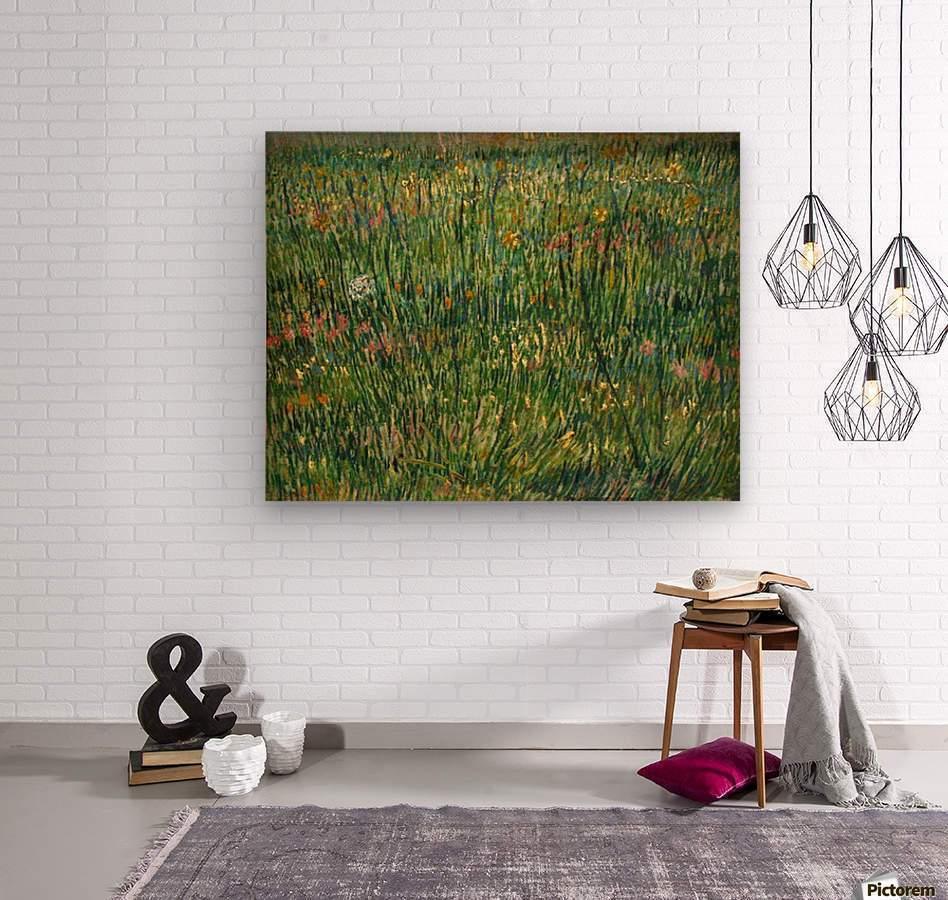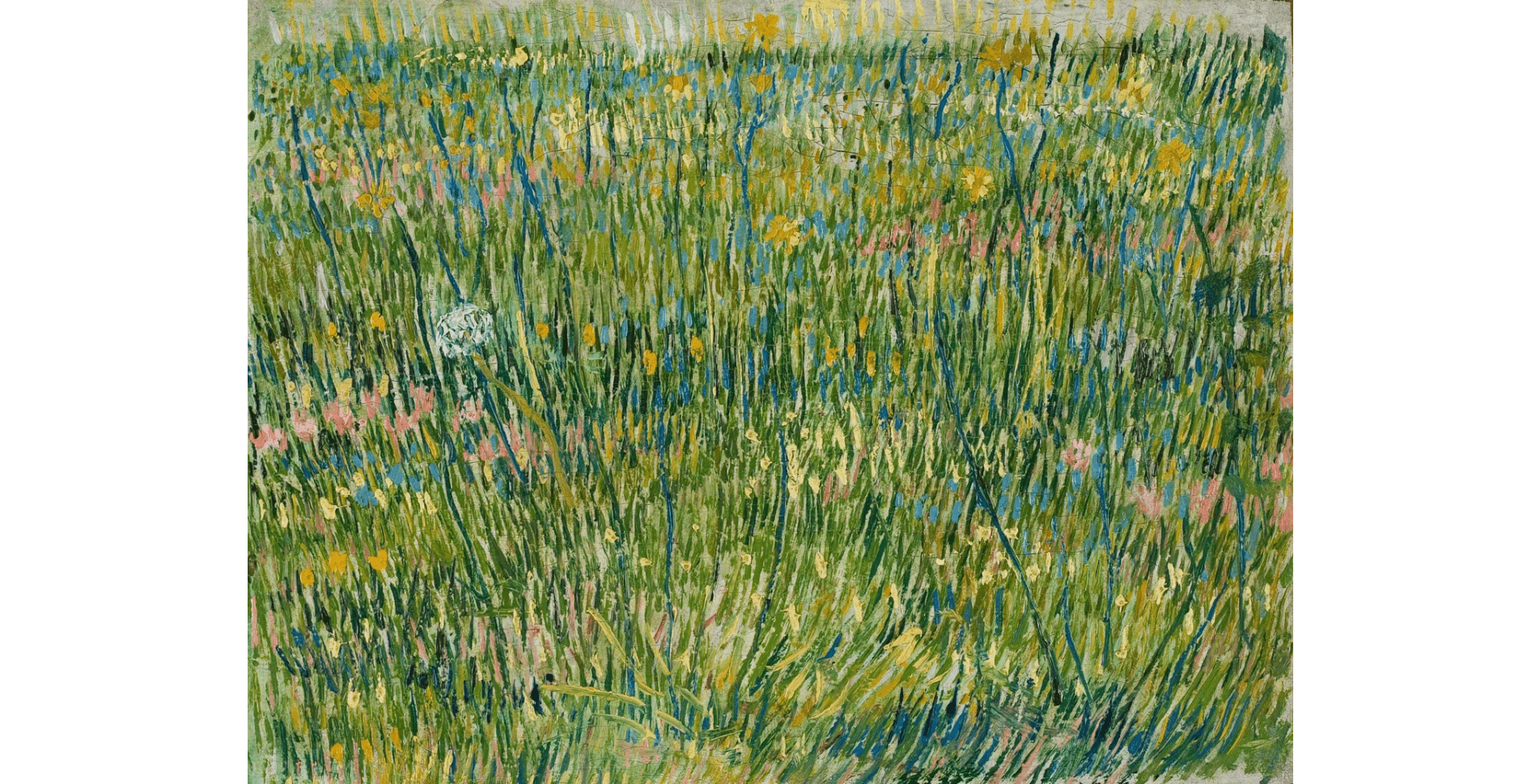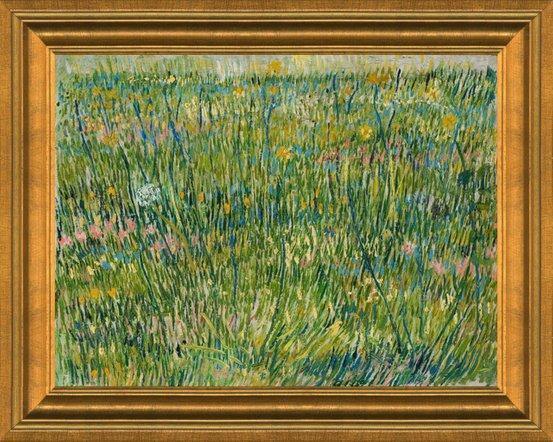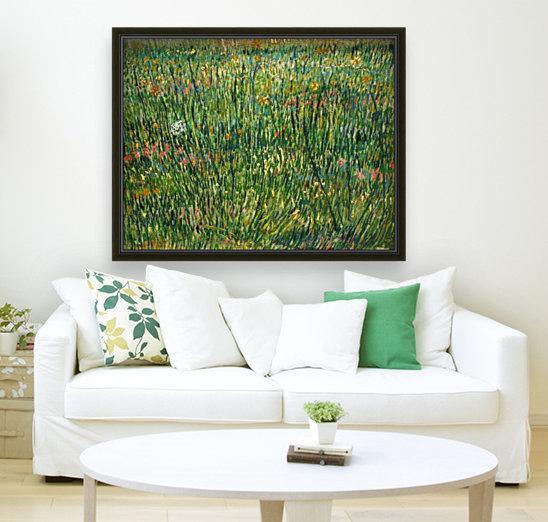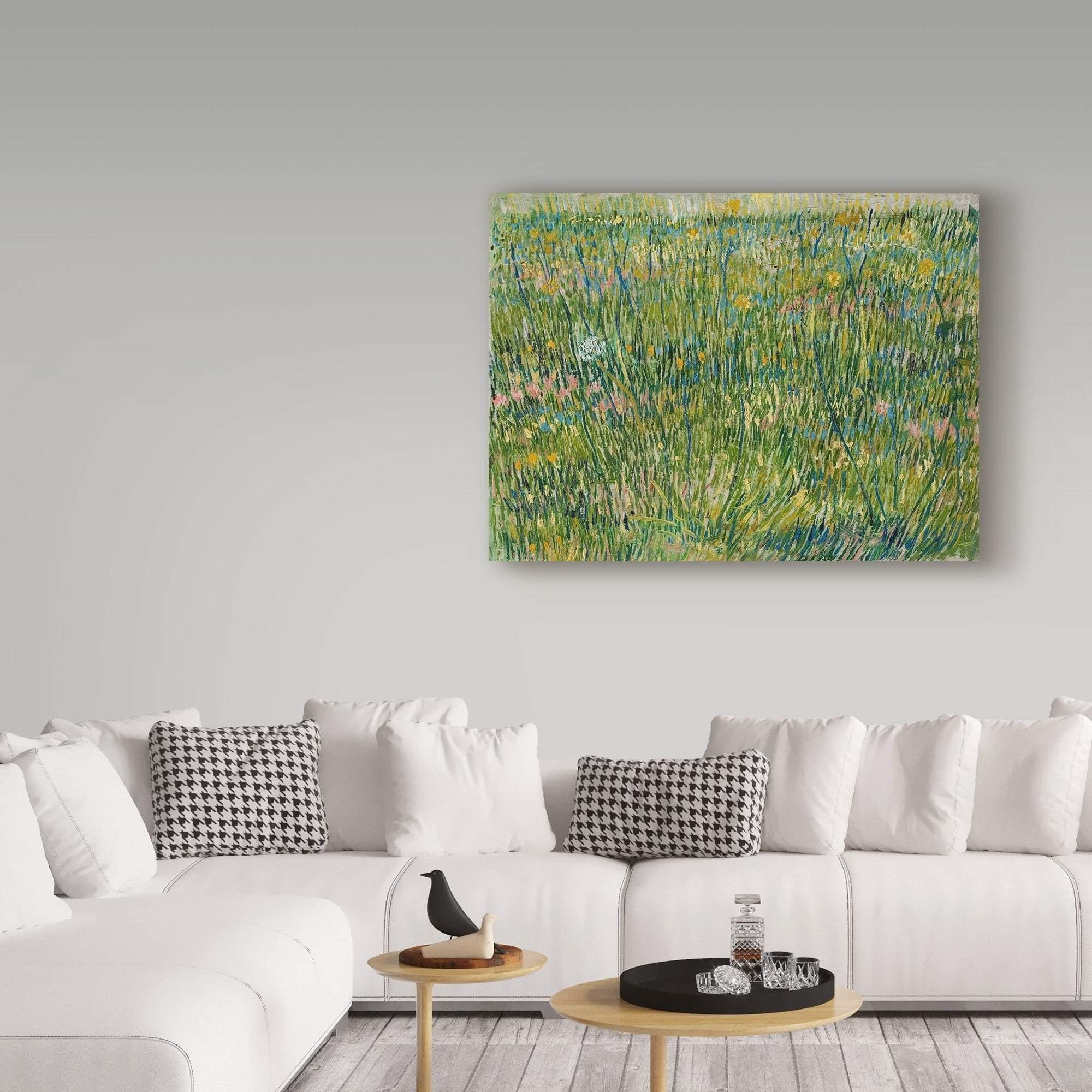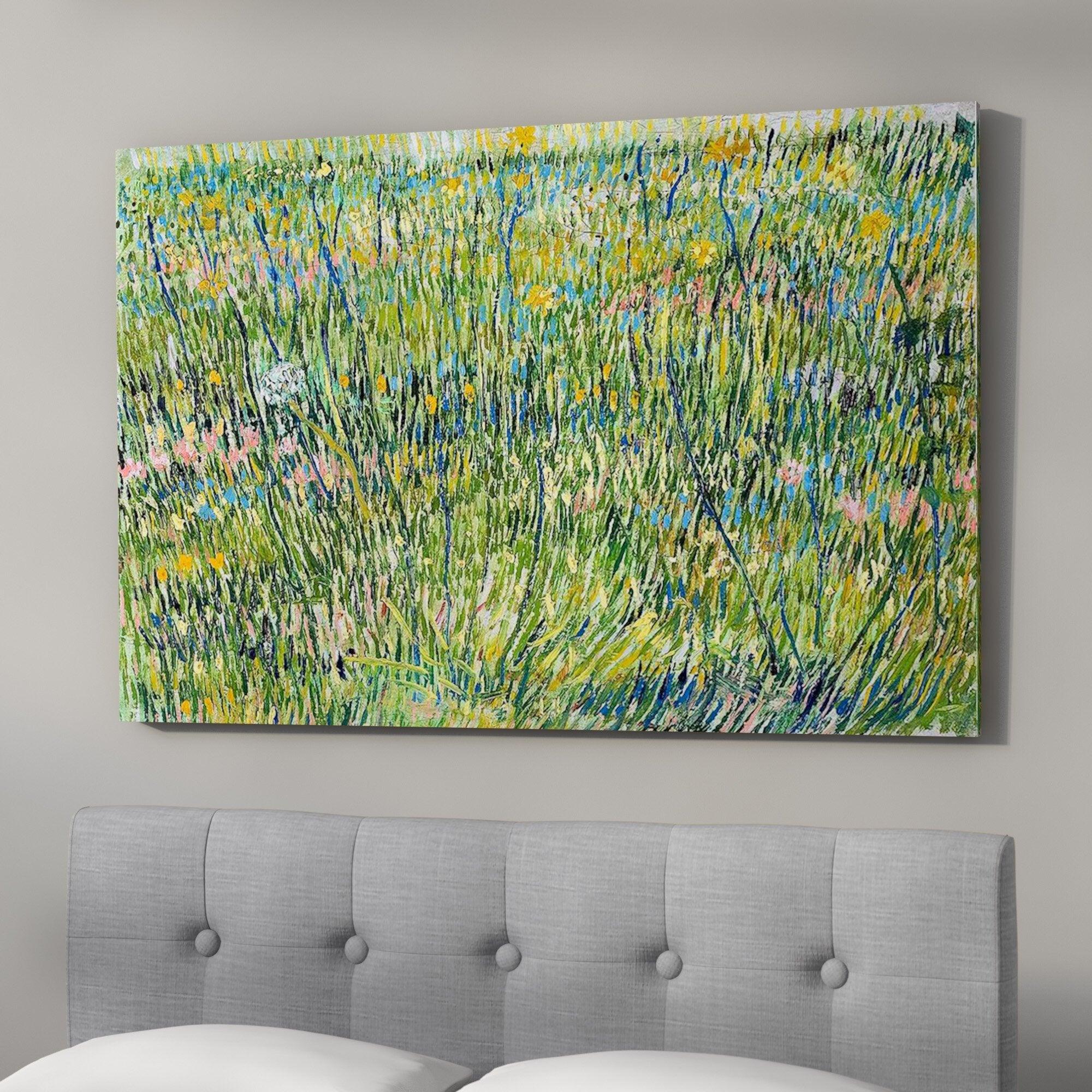Description
Van Gogh first saw the work of the Impressionists when he arrived in Paris in February 1886. He realized that his own palette was dark and old-fashioned and began experimenting with lighter colors and a different type of brushwork.
In the spring and summer of the following year, the artist regularly went to paint outdoors in Asnières, a town near Paris. Later, in a letter to his sister Willemien, he wrote that in the landscape there he "saw more color than before". This patch of grass may well have been painted at Asnières. He probably wanted to practice his new technique. Each brushstroke matches precisely what it is depicting: the blade of grass, the petal, or the stem.
There are secrets hidden in this painting. For this work Van Gogh used a canvas on which he had previously painted. X-ray images reveal a woman's head wearing a hat below the patch of grass. He is supposed to have painted this woman's head in 1884-1885 in the Brabant village of Nuenen, about two and a half years before he painted the Grass Patch above it.
In 2008, Dutch scientists Joris Dik and Koen Janssens pioneered the X-ray technique that helped them uncover the hidden portrait of the peasant girl buried under the painting. Van Gogh was known to paint over his earlier works, and experts estimate that around a third of his early pieces hide figures or other previous work beneath them.
Striking is the stark contrast between the somber use of color in his Nuenen period and the palette of colors and light the artist used in Paris.
His extremely rapid and radical style development is literally embodied in this single painting.

